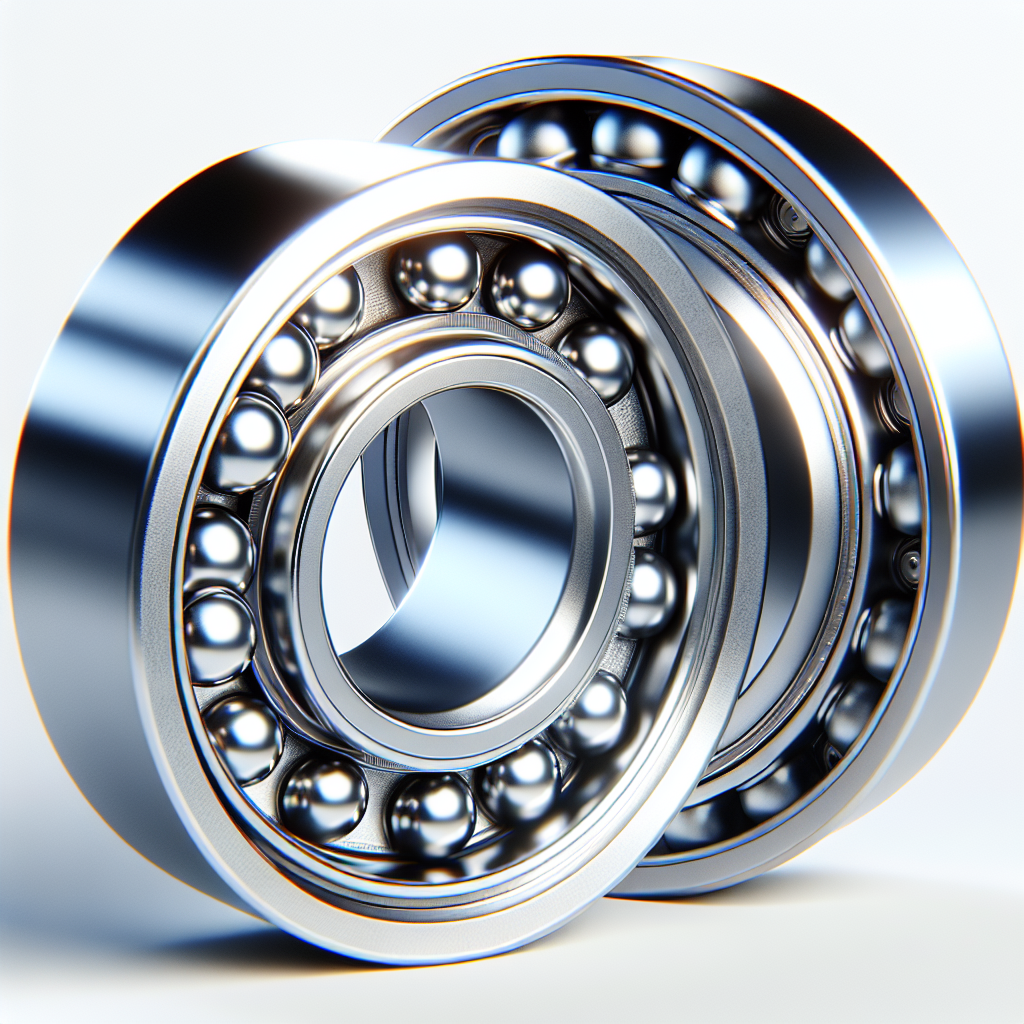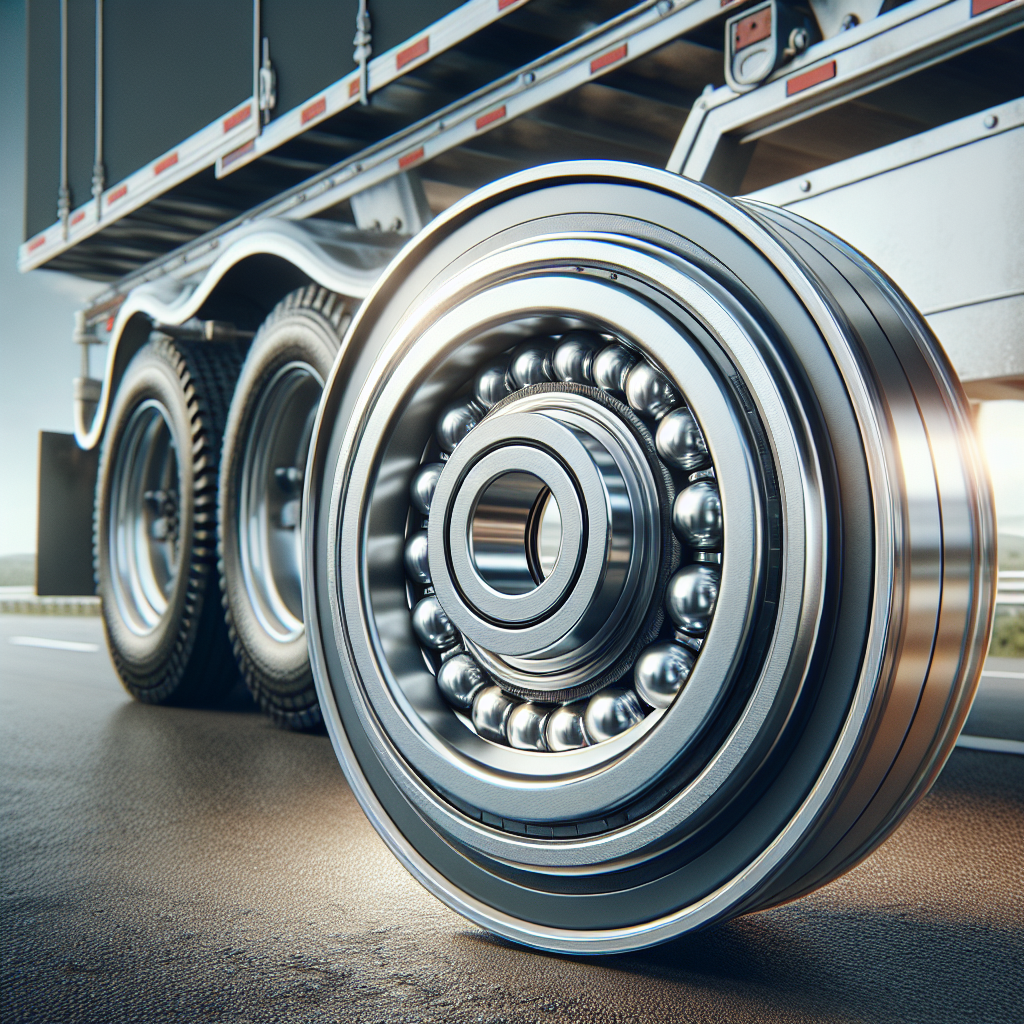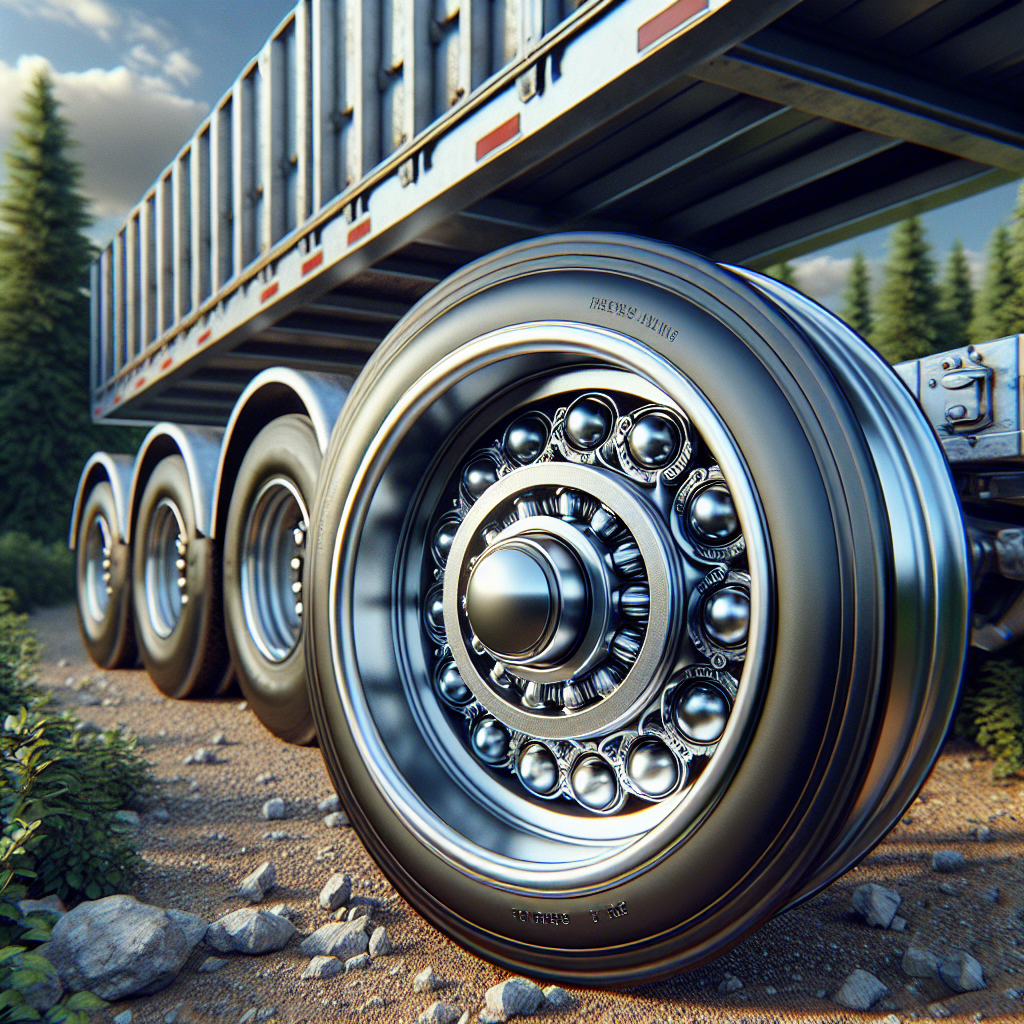When it comes to ensuring the smooth operation of your trailer, wheel bearings play a crucial role. Understanding their importance can not only enhance your trailer’s performance but also significantly improve safety on the road. Trailer wheel bearings are designed to support the axle and facilitate smooth rotation of the wheels, which is essential for safe towing.
Here are several reasons why maintaining and checking your trailer wheel bearings is vital:
- Safety: Faulty or worn-out bearings can lead to wheel failure, causing accidents that may result in injury or damage to your vehicle and cargo.
- Performance: Well-maintained bearings ensure that your trailer operates efficiently, providing better fuel economy and overall performance.
- Longevity: Regular checks can extend the lifespan of your trailer’s wheels and tires, saving you money on replacements and repairs.
- Prevention of Catastrophic Failures: As a part of your regular maintenance, inspecting wheel bearings can help prevent severe failures that could lead to being stranded or incurring costly repairs.
By prioritizing the condition of your wheel bearings, you are taking a proactive approach to trailer maintenance. This contributes not only to your safety but also to the well-being of others on the road. Tow with peace of mind, knowing that trailerwatchdog is standing guard, monitoring the critical aspects of your trailer.
Essential Tools for Checking Trailer Wheel Bearings

To effectively check trailer wheel bearings, having the right tools on hand is essential. These tools not only facilitate a thorough inspection but also ensure that you can perform the task safely and efficiently. Below is a list of the essential tools you will need:
- Jack and Jack Stands: A reliable jack will lift your trailer, while jack stands provide stable support, allowing you to safely work on the wheel bearings.
- Socket Set: A good quality socket set is necessary for removing the wheel hub and accessing the bearings.
- Bearing Grease: Keeping bearings lubricated is vital for their performance. Have a tub of high-quality bearing grease ready for reassembly.
- Cleaning Supplies: Brake cleaner or degreaser will help remove old grease and debris from the bearings and hub, ensuring a clean inspection surface.
- Torque Wrench: This tool is important for properly tightening the wheel lug nuts to the manufacturer’s specifications, ensuring safety during operation.
- Flathead and Phillips Screwdrivers: These are often needed to remove any additional covers or components that may be in the way of the wheel hub.
Having these tools not only makes the process smoother but also increases the likelihood of identifying potential issues early on. Ensuring your trailer wheel bearings are in optimal condition is essential for safe towing.
Step-by-Step Guide to Inspecting Wheel Bearings
Inspecting your trailer's wheel bearings is a critical maintenance task that can prevent future issues and ensure safe towing. Follow this step-by-step guide to effectively check your wheel bearings:
- Prepare Your Trailer: Park your trailer on a level surface and ensure that it is secure. Use wheel chocks to prevent rolling.
- Lift the Trailer: Using a jack, lift the trailer and secure it with jack stands. This will provide safe access to the wheel assembly.
- Remove the Wheel: Using your socket set, carefully remove the lug nuts and take off the wheel to expose the hub and bearings.
- Inspect the Bearings: Check the bearings for signs of wear or damage. Look for pitting, discoloration, or excessive play. If the bearings feel gritty or rough, they need replacing.
- Clean the Components: Use brake cleaner to thoroughly clean the bearings and the hub. Removing old grease and debris will help you assess their condition better.
- Repack the Bearings: If the bearings are in good condition, repack them with fresh grease. Ensure that it is evenly distributed and fills all gaps.
- Reassemble the Wheel: Place the wheel back onto the hub, secure it with lug nuts, and use a torque wrench to tighten them to the manufacturer’s specifications.
- Lower the Trailer: Carefully remove the jack stands and lower the trailer back to the ground.
By following these steps, you can ensure your trailer's wheel bearings are in top condition, enhancing safety and performance on the road.
Signs of Worn or Damaged Wheel Bearings

Being able to identify the signs of worn or damaged wheel bearings is crucial for maintaining the safety and performance of your trailer. Here are some key indicators to watch for:
- Unusual Noises: Listen for grinding, squeaking, or rumbling sounds coming from the wheel area. These noises often indicate that the bearings are failing.
- Excessive Play: If you notice excessive movement in the wheel when you grab it at the 12 and 6 o’clock positions, this suggests that the bearings may be worn out.
- Temperature Variance: Overheating is a significant warning sign. If you touch the hub after a short drive and it feels excessively hot, it could indicate bearing failure.
- Grease Leakage: Check for grease leaking from the hub. If you see grease on the wheel or hub, it’s a clear sign that the seals may be compromised, allowing contaminants to enter.
- Vibration: If you experience unusual vibrations while towing, this could be linked to wheel bearing issues. Such vibrations can also affect vehicle handling.
- Uneven Tire Wear: Inspect your tires for uneven wear patterns. This can be a symptom of failing bearings, which may cause misalignment.
Addressing these signs early can prevent significant damage and costly repairs. Regular inspections and maintenance of wheel bearings are essential to ensure a safe towing experience.
Maintenance Tips for Prolonging Wheel Bearing Life

To ensure the longevity and reliability of your trailer's wheel bearings, implementing proactive maintenance is key. Here are some essential maintenance tips for prolonging wheel bearing life:
- Regular Inspections: Conduct routine checks on your wheel bearings, ideally every 12,000 miles or every year. Look for signs of wear, noise, and any visible damage.
- Lubrication: Ensure that wheel bearings are properly lubricated. Use high-quality grease and follow the manufacturer's recommendations on the type and frequency of lubrication.
- Seal Integrity: Inspect bearing seals for damage or wear. Ensure that they are intact to prevent contaminants like dirt and moisture from entering the bearing assembly.
- Proper Installation: When replacing or servicing wheel bearings, ensure they are installed correctly. Follow manufacturer guidelines to avoid misalignment or improper fitting.
- Monitor Tire Pressure: Keep an eye on tire pressure and ensure they are inflated to the recommended levels. Incorrect tire pressure can lead to uneven wear on wheel bearings.
- Avoid Overloading: Adhere to the weight limits specified for your trailer. Overloading can put excessive pressure on wheel bearings, leading to premature wear or failure.
By integrating these maintenance practices into your routine, you can significantly enhance the lifespan of your wheel bearings, ensuring a safer and more efficient towing experience.
When to Seek Professional Assistance for Bearings

Understanding when to seek professional assistance for your trailer's wheel bearings is crucial to maintaining safety and performance. While routine checks and basic maintenance can often be handled independently, certain situations call for the expertise of a professional.
- Unusual Noises: If you notice strange sounds emanating from your trailer, such as grinding or humming, it may indicate a serious problem with the wheel bearings. Don’t ignore these warning signs; consult a professional.
- Excessive Heat: If the wheel hub feels unusually hot to the touch during or after a trip, this could be a sign of bearing failure. Immediate professional inspection is advised to prevent further damage.
- Vibration Issues: Any abnormal vibrations while towing can suggest that the wheel bearings are misaligned or worn. A technician can accurately diagnose and correct these issues.
- Frequent Bearing Failures: If you find that you are replacing wheel bearings more often than expected, it might be time to seek expert help. A professional can identify underlying causes that you may not be able to see.
- Inexperienced in Repairs: If you're unsure about how to handle bearing maintenance or repairs, it’s better to leave it to the professionals. Proper service is critical for the safety of your trailer.
Recognizing these signs early and seeking professional assistance can save you time and money in the long run. Tow with peace of mind, knowing that trailerwatchdog is standing guard.








